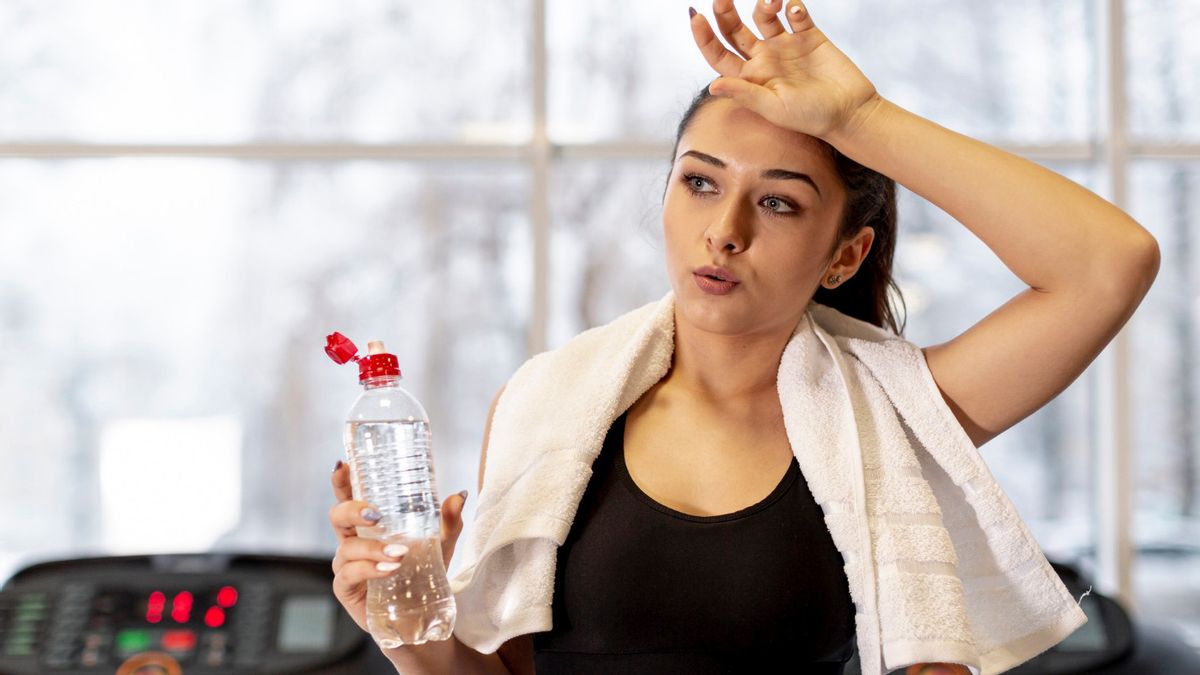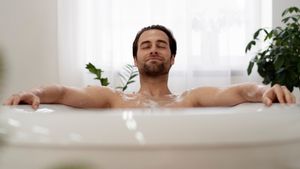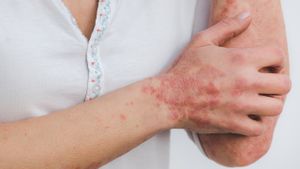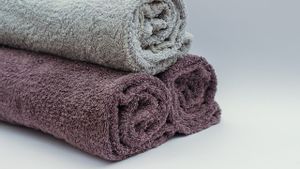YOGYAKARTA – After exercising, you not only sweat, your muscles feel tense and your heart beats fast. Showering after exercise may be good. For the sake of hygiene and is also useful for relaxing muscles and preventing lactic acid from getting trapped in sore muscles.
Even though bathing is not restorative, it is important to pay attention to proper bathing. Your post-workout recovery routine should include a not-too-strenuous cool-down period before you shower or bathe. Taking a cold shower after exercise, according to a small 2019 study reported by Healthline, Wednesday, January 3, helps reduce heart rate and heart stress quickly after exercising in a high-temperature environment.

Another study, conducted in 2017, showed cold water immersion was no more effective than active recovery. Like cycling 10 minutes on a stationary bike after a hard workout. This helps reduce inflammation or cellular stress in muscles after resistance training.
So is it appropriate to take a cold shower? A hot, steamy shower may feel good on your muscles after a workout, but a cold shower is actually a scientifically supported method for rinsing off your sweat. Although cold showers can cause a decrease in strength and muscle mass, warm showers have no clear effect after exercise.
Bathing after exercise is recommended to start with lukewarm water or warm enough after cooling or cooling the body. Towards the end of your shower, apply cool water to your body to complete your cooling routine.

Bathing after exercise is important because it is useful for cleaning the skin from bacteria. Especially when you exercise in a closed environment, such as in a studio, gym, or other closed place. When you shower with soap, your sweat is removed, along with dead skin cells that can host invading bacteria.
After exercise, the skin pores open to release sweat from the sweat glands. These pores can become blocked by skin cells or residual sweat if you don't clean your body immediately after sweating a lot. Clogged pores can cause acne called “sweat acne” as well as blackheads and whiteheads.
Rinsing the body when showering with cold water is also beneficial for improving the immune system. Especially if made into a habit, studies show that rinsing with cold water last after a warm shower for 30-90 seconds, significantly reduces the number of sick days at work.
SEE ALSO:
How to take a cold shower after exercising, the first thing that is important to note, end high-intensity exercise with a gentler type of exercise as part of cooling down. This will help lower the heart rate. Once your heart rate drops, start stretching your muscles which will clear the lactic acid and prevent pain. Then, you can start bathing with lukewarm water so that your body is not shocked by the change in temperature. If your body temperature has dropped, you can start dousing your body with cold water. Don't forget to use antibacterial soap to clean sweat and bacteria. After showering, dry your body with a clean towel.
In addition to cold showers, ice baths after exercise can also reduce muscle inflammation, flush out lactic acid, and help muscles begin the healing process after strength training. But this is only a complement to muscle recovery. Apart from showering, after exercise it is also important to refuel the body in the form of protein-rich foods, vitamin-rich smoothies, and restore balance to the body by getting enough rest.
The English, Chinese, Japanese, Arabic, and French versions are automatically generated by the AI. So there may still be inaccuracies in translating, please always see Indonesian as our main language. (system supported by DigitalSiber.id)













